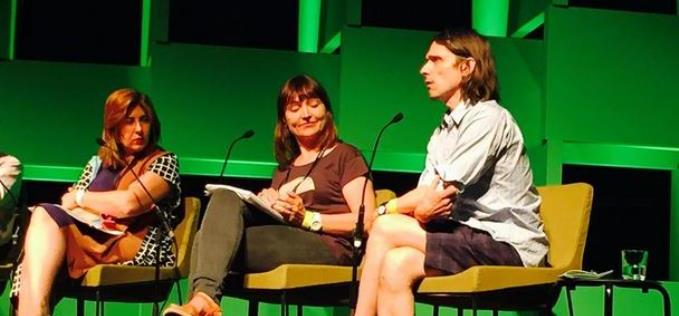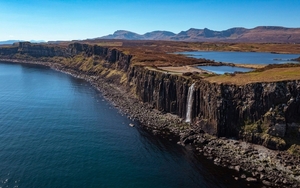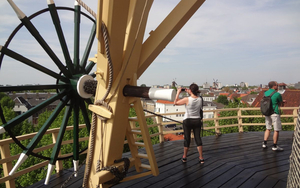BILLED as an ideas lab slash art school, day-long event Interdependence spread a veritable tasting menu of what the festival has to offer for only £5. Saturday’s line-up included socio-political artist Jeremy Deller (whose performance artwork Procession opened the 2009 festival), a panel discussion on the importance of art as a response to conflict and trauma, Beautiful Baghdad a short film by Aman Al-Amiri on his native city, a discussion and demonstration from Reggie Roc’s FlexN dance crew and the Sacred Sounds Woman’s Choir.
Never manage artistic people. Only control the money
An unexpected highlight was a discussion with Venezuelan musician Arca and his collaborator digital artist Jesse Kanda. These young artists managed to convey a sense of excitement and freshness in a world that can sometimes get entranced by its own buzzwords and clever ideas.
A behind-the-scenes look at how festivals such as MIF come together came from the panel discussion 'Does Culture Need Walls', chaired by a positively glowing Maria Balshaw. This gave an insight into the more specialised aspects of what might be termed ‘cultural asset management’. Azu Nwagbogu opened the discussion with a short film from the LagosPhoto festival in Nigeria, illustrating how a dearth of public spaces dedicated to art can actually lead to creative use of found space, “In Lagos”, he said, “the entire landscape is a theatre”. HOME’s David Moutrey argued that some walls were needed for art, at the very least for technical purposes, but also because people start to build a sense of loyalty to place.
A note of caution was sounded by Manchester University’s Abigail Gilmore, who told the audience about how city-centre art spaces are still viewed as inaccessible and elite by those living just a few miles away. Incoming MIF director John McGrath certainly whetted appetites for the next edition as he showed the audience some of the mind-bending projects the National Theatre Wales has come up with under his lead.
Howard Bernstein, reflecting on the partnership between the festival and the City Council, recalled some advice the mayor of Barcelona had given him: “Never manage artistic people. Only control the money.” Advice he has followed to the letter it seems.
 Artist Jeremy Deller at Interdependence (photo credit: Dave Moutrey)
Artist Jeremy Deller at Interdependence (photo credit: Dave Moutrey)Perhaps my favourite segment was from artist Olafur Eliason, Tree of Codes contributor and creator of suns in turbine halls and dancing rainbows. His thesis was that the artwork didn’t really exist until the viewer helped create it – that art is a participatory experience rather than passive consumption. It was a shame then that the first day of Interdependence was a sedentary experience (on the audience’s part at least). Still, this Interdependence is a real complement to the rest of the festival programme - a chance for people to understand and discuss the ideas and issues that go into conceiving and rolling out such a huge undertaking.
Perhaps the last word should go to Howard Bernstein, who, recalling some of the problems getting Matthew Barney’s Il Tempo del Postino on stage, said:
“It involved a girl weeing on stage and the bull doing sexual things with a car. Well I always knew the festival wasn’t going to be The Sound of Music...”
Interdependence runs at Old Granada Studios from Sat 4 to Sun 5 July.
MIF 15 - CATCH UP ON ALL THE REVIEWS, NEWS AND ACTION HERE













